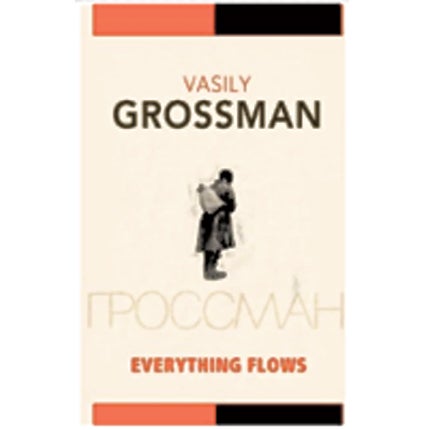Everything Flows, By Vasily Grossman
'No one will read this for 200 years'

Your support helps us to tell the story
From reproductive rights to climate change to Big Tech, The Independent is on the ground when the story is developing. Whether it's investigating the financials of Elon Musk's pro-Trump PAC or producing our latest documentary, 'The A Word', which shines a light on the American women fighting for reproductive rights, we know how important it is to parse out the facts from the messaging.
At such a critical moment in US history, we need reporters on the ground. Your donation allows us to keep sending journalists to speak to both sides of the story.
The Independent is trusted by Americans across the entire political spectrum. And unlike many other quality news outlets, we choose not to lock Americans out of our reporting and analysis with paywalls. We believe quality journalism should be available to everyone, paid for by those who can afford it.
Your support makes all the difference.Imagine losing the best years of your life for a crime you did not commit.
In Vasily Grossman's extraordinary final novel, Ivan Grigoryevich has been incarcerated in the Gulag for 30 years. He is only released because Stalin dies. He returns to the Moscow and Leningrad of his youth, a broken and grey-haired man in a world he no longer understands, among people cowed by the regime or morally bankrupt. Like so many of the innocent who were executed or condemned to labour camps in Stalin's purges, Ivan has done nothing wrong. He is a victim of time and circumstance.
Grossman was born in 1905 and worked as a journalist covering the defence of Stalingrad, the fall of Berlin and the consequences of the Holocaust. Life and Fate, generally considered his masterpiece, was seized by the KGB and Grossman was curtly informed it would not be published for 200 years. He died in 1964, before finishing his revisions of Everything Flows. His uncompromising chapters on Lenin and Stalin fell foul of the Soviet censors.
Not surprisingly, Grossman is concerned with the nature of freedom and devotes pages to this subject through Ivan's musings. To some detainees in the camps, "freedom really is terrifying". Despite the horrifying conditions, many don't want to risk re-assimilation: "There had been instances of old men being released from a camp and asking to be readmitted. The whirl of life outside had knocked them off their feet."
At the heart of the book is a terrifying account of the Terror famine of 1932-3, which resulted in the genocide of between three to five million Ukrainian peasants. As told by Ivan's sad, guilt-ridden lover, Anna Sergeyevna: "The whole village died. First it was the children, then it was the old people, then it was the middle-aged. In the beginning people dug graves for them, but then they stopped. And so the dead were lying on the streets, in the yards, and the last to die just remained in their huts... The whole village had died."
This tremendous book has the power to make you weep at man's inhumanity to man and, at the same time, rejoice that freedom does not die. Thanks to Robert Chandler and his co-translators, Elizabeth Chandler and Anna Aslanyan, the Russian voice positively sings. You can tell that Grossman really loved his characters; he reveals their very souls as they speak to us from beyond the grave.
Join our commenting forum
Join thought-provoking conversations, follow other Independent readers and see their replies
Comments